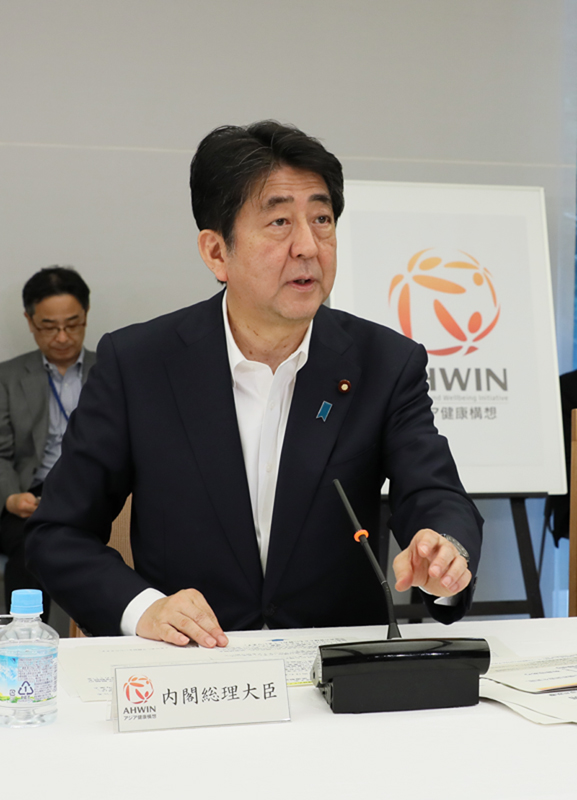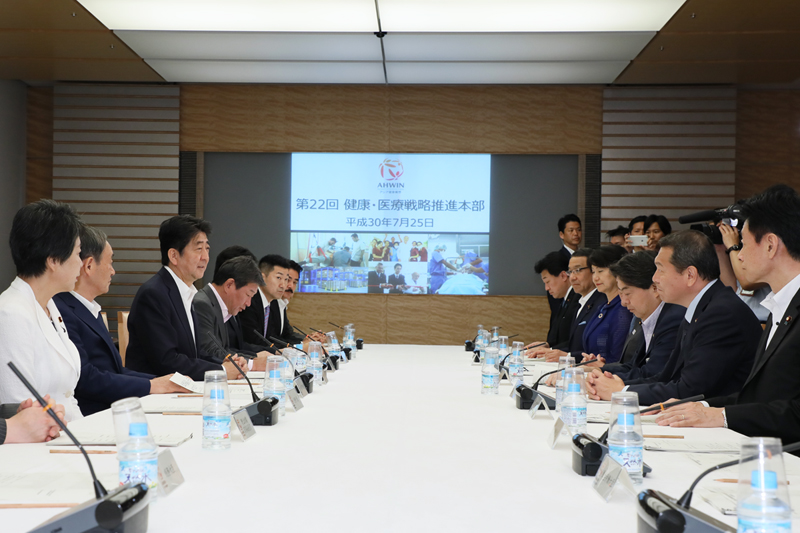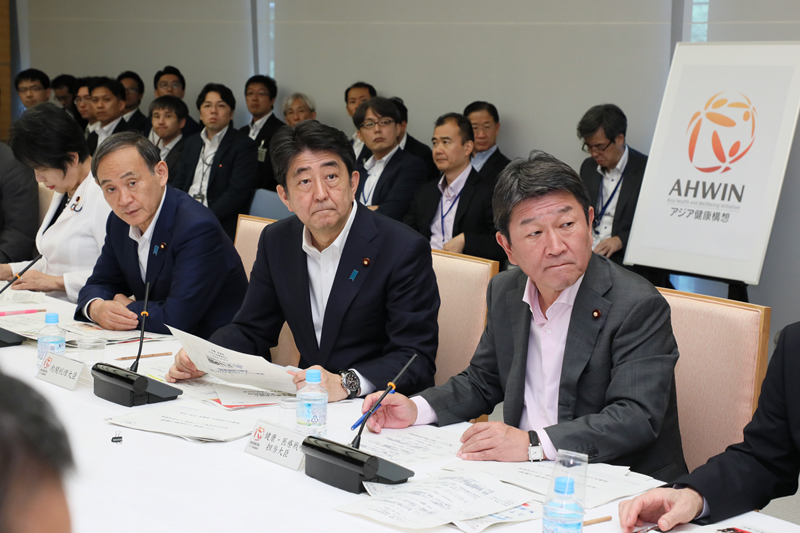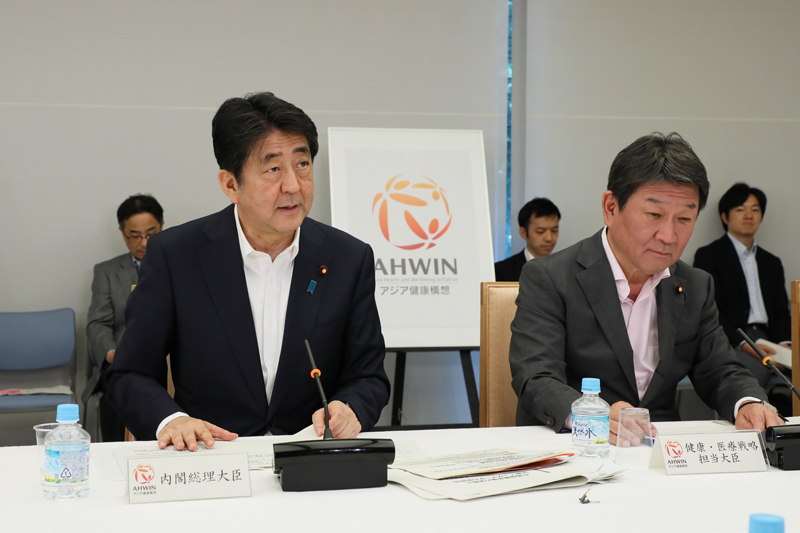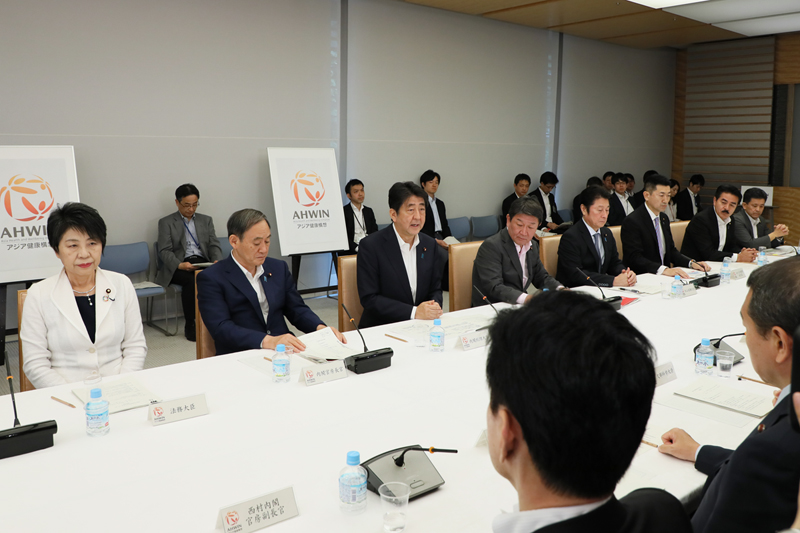Home > News > The Prime Minister in Action > July 2018 > Headquarters for Healthcare Policy
The Prime Minister in Action
Headquarters for Healthcare Policy
July 25, 2018
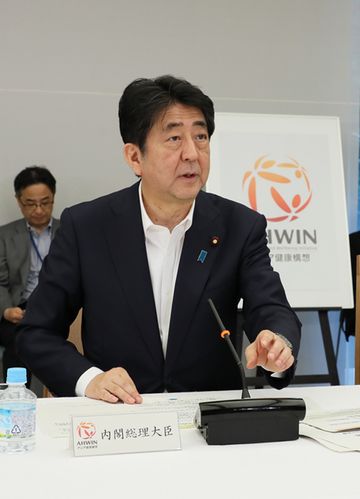
Photograph of the Prime Minister making a statement

Photograph of the Prime Minister making a statement
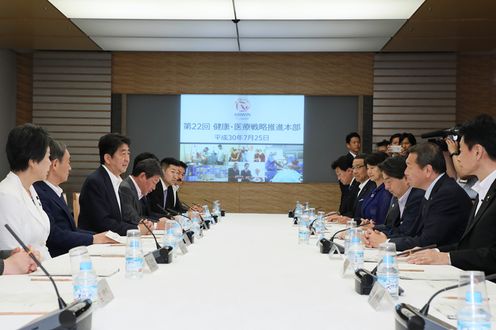
Photograph of the Prime Minister making a statement
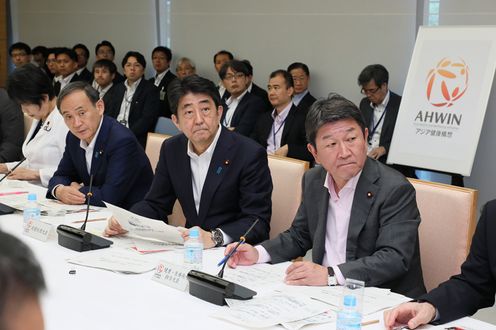
Photograph of the Prime Minister receiving an explanation
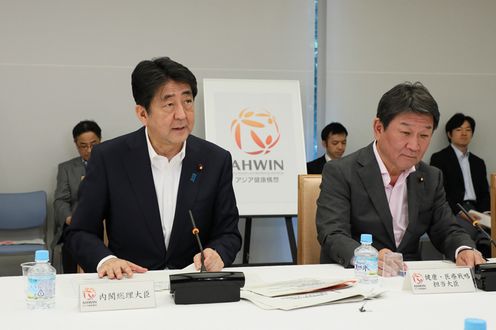
Photograph of the Prime Minister making a statement
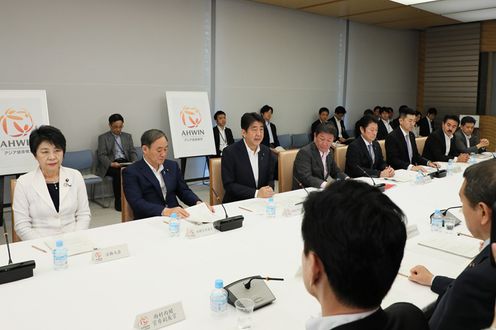
Photograph of the Prime Minister making a statement
[Provisional Translation]
On July 25, 2018, Prime Minister Shinzo Abe held the 22nd meeting of the Headquarters for Healthcare Policy at the Prime Minister’s Office.
At the meeting, a discussion was held on the revisions of the Basic Principles of the Asia Health and Wellbeing Initiative, and an explanation was provided on cases related to the Healthcare Policy.
Based on the discussion and explanation, the Prime Minister said,
“Today, we revised the Basic Principles of the Asia Health and Wellbeing Initiative. In order to ensure health and longevity in all of Asia in the face of rapidly aging populations, it is critical that we lay the foundation and develop communities for people to lead healthy lives all in a well-balanced manner as well as enhance medical and nursing care and boost healthcare services for preventive and health maintenance that support such enhancements. We will collaborate with the people of Asia in pushing forward this initiative to materialize a Mt. Fuji-type healthcare (healthcare which employs a wide range of human resources, is functionally differentiated, and aims for highly specialized care).
In addition, we received briefings from four experts who presented their designated cases related to our healthcare and medical strategy.
I hope that, in particular, Dr. Kitahara and Dr. Kamada will continue to open a new frontier in international medicine.
The Next-Generation Medicine Infrastructure Act entered into force in May of this year, which enables us to utilize and access medical information in the form of Big Data. The Government will work together with members of the medical community, including President Yokokura of the Japan Medical Association, to make full use of such data so that it will lead to the development of new medical technologies.
Changing work styles of the employees and creating organizations where they can work in good health and with peace of mind will improve corporate business performance. Health management as presented by Ms. Shinsa will trigger the establishment of such favorable environments. We will expand this to many more companies, and thereby, promote health and improve corporate business performance simultaneously.
Materializing a society in which people enjoy long and healthy lives is a major pillar of the Growth Strategy of the Abe Cabinet. The Government will act in unity in working to steadily promote our healthcare and medical strategy, including the Asia Health and Wellbeing Initiative.”

